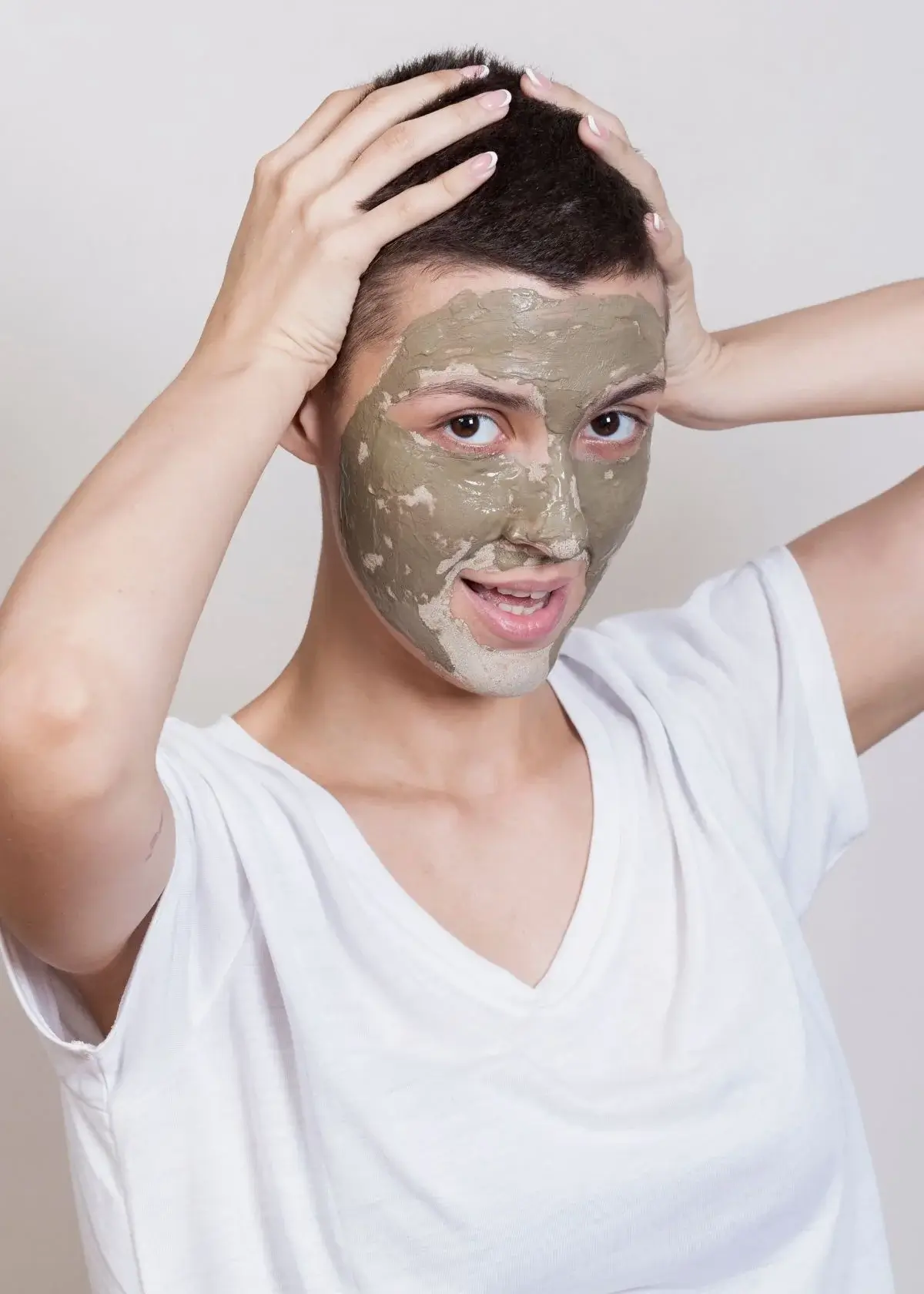Before diving into the face mask world, let's take a moment to understand the importance of skincare. Our skin is our body's largest organ, acting as a protective barrier against external elements. Caring for our skin's health and maintaining its natural balance is vital. Acne breakouts can be frustrating and impact our self-confidence. Fortunately, face masks can play a significant role in preventing acne and achieving clearer, smoother skin.
Understanding Acne
Acne is a common skin condition characterized by the formation of pimples, blackheads, and whiteheads. It occurs when hair follicles become clogged with oil, dead skin cells, and bacteria. Factors such as hormonal changes, genetics, and environmental factors contribute to the development of acne.
Face Masks and Acne Prevention
Face masks can be powerful tools in the fight against acne. They work by removing excess oil, unclogging pores, and reducing inflammation. Different types of face masks are available, each with its unique benefits for acne-prone skin. Clay masks, for example, absorb excess sebum and impurities, while charcoal masks purify the skin by drawing out toxins. Antioxidant-rich masks can help reduce inflammation and promote healing.
Regular use of face masks can provide several benefits for acne prevention. They help control oil production, deep cleanse the pores, and gently exfoliate the skin. Face masks can also improve the absorption of other skincare products, such as serums and moisturizers, allowing them to penetrate deeper into the skin.
Tips for Using Face Masks Effectively
Proper application and removal are crucial to get the most out of your face masks. Start by cleansing your face thoroughly to remove any dirt or makeup. Apply an even mask layer, avoiding the delicate eye and lip areas. Leave the mask on for the recommended time, typically 10-15 minutes, or as directed on the product label. Gently rinse off the mask using lukewarm water, and pat your skin dry. Follow up with a moisturizer to hydrate and replenish your skin.
As with any skincare product, consistency is key. Use face masks 1-3 times per week, depending on your skin's needs. Adjust the frequency based on how your skin responds and consult with a dermatologist if necessary. Remember to incorporate face masks into a well-rounded skincare routine that includes cleansing, exfoliating, and moisturizing.
Other Skincare Practices for Acne Prevention
While face masks can be a valuable addition to your skincare routine, it's important to remember that they are just one piece of the puzzle. To effectively prevent acne breakouts, adopt other healthy skincare practices as well. Cleanse your face twice daily, using a gentle cleanser that doesn't strip away essential moisture. Exfoliate regularly to remove dead skin cells and unclog pores. Moisturize your skin with non-comedogenic products to maintain hydration and balance. Besides, consider making lifestyle changes such as maintaining a healthy diet, managing stress levels, and avoiding touching your face.
Incorporating face masks into your skincare routine can be a game-changer for acne prevention. By choosing the right mask for your skin type and using it consistently, you can effectively control oil production, unclog pores, and reduce inflammation. Remember to practice good skincare habits alongside using face masks, including regular cleansing, exfoliating, and moisturizing. With dedication and a well-rounded approach to skincare, you can achieve clearer, healthier skin and boost your self-confidence.
After conducting thorough research, we have compiled a list of the best face masks for acne. These masks are specifically designed to address acne-prone skin and provide effective solutions. Whether you're looking for a clay mask, sheet mask, or a hydrating mask, various options are available to suit your preferences. Some popular choices include the Peter Thomas Roth Therapeutic Sulfur Acne Treatment Mask, the Differin Clay Face Mask, and the Yes To Tomatoes Acne-Fighting Paper Mask. To explore the full range of options and find your new favorite face mask for acne, follow the provided link.
What are the key factors contributing to acne breakouts?
Acne, a multifaceted dermatological concern, results from a delicate interplay of various factors. Elevated sebum production, pore congestion, bacterial proliferation, and inflammatory responses intricately intertwine. Hormonal fluctuations, stress, and specific medications contribute, emphasizing the imperative need for a comprehensive strategy. This approach not only comprehends the complexities of acne development but effectively addresses and prevents diverse manifestations. Tailoring the skincare routine to individual triggers and adopting a holistic lifestyle approach, including stress management and a nutrient-rich diet, is pivotal in achieving clearer and healthier skin. Regular dermatological consultations can provide personalized insights.

What types of face masks are recommended for acne-prone skin?
The selection of suitable face masks for acne-prone skin requires a thoughtful approach. Prioritize breathable, non-comedogenic materials like cotton to minimize potential skin irritation. Synthetic fabrics, known for trapping heat and moisture, can exacerbate acne. Besides, incorporating a regular laundering routine for reusable masks becomes pivotal, preventing bacterial accumulation and fostering an environment promoting clearer and healthier skin.

What ingredients should I look for in a face mask for acne?
Discerning the efficacy of face masks involves identifying those enriched with potent acne-fighting elements. Salicylic acid, benzoyl peroxide, or clay are dynamic ingredients that synergistically address excess oil, unclog pores, and combat acne-causing bacteria. This multifaceted approach ensures adaptability to the diverse spectrum of acne types, catering to the unique needs of individual skin profiles. To mitigate potential irritation, look for masks with other soothing agents like aloe vera or chamomile.

How does a salicylic acid face mask work to combat acne?
Delving into the specifics of salicylic acid's action reveals its multifunctional properties. As a distinguished beta-hydroxy acid, it exhibits remarkable skin penetration capabilities. Salicylic acid dissolves excess oil and exfoliates dead skin cells, unclogging pores and preventing acne formation. Beyond this, its anti-inflammatory properties contribute to a reduction in redness, fostering a smoother complexion. This makes it an indispensable component in face masks explicitly tailored for acne-prone skin, providing a comprehensive solution addressing various acne aspects.

How should I properly cleanse my face before applying an acne face mask?
Establishing a meticulous pre-mask cleansing routine is pivotal for optimizing the effectiveness of subsequent treatments. Utilize a gentle, non-comedogenic cleanser to eliminate impurities, excess oil, and makeup effectively. This preparatory step ensures that the skin is optimally primed, allowing the active ingredients in the face mask to penetrate deeply and effectively. Consider occasionally incorporating a mild exfoliator to enhance the cleansing process's efficacy, promoting a more precise canvas for subsequent treatments. Besides, a pH-balanced toner may help rebalance the skin's pH and prepare it for targeted acne treatments.
Should I use a different face mask for hormonal acne compared to other types of acne?
Addressing hormonal acne necessitates precision and customization. Face masks enriched with specific ingredients like niacinamide, retinol, or sulfur are recognized for their efficacy in regulating oil production and mitigating inflammation, both key factors in hormonal acne. Tailoring the skincare approach to the unique triggers of hormonal acne ensures a nuanced and targeted routine that comprehensively addresses the distinctive aspects of this specific acne subtype. Incorporating lifestyle adjustments, such as a balanced diet, regular exercise, and stress management, further enhances the effectiveness of the skincare routine, promoting optimal skin health with a personalized touch. Regular monitoring and adjustments to the routine based on hormonal fluctuations contribute to long-term success in managing hormonal acne.







